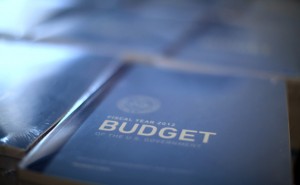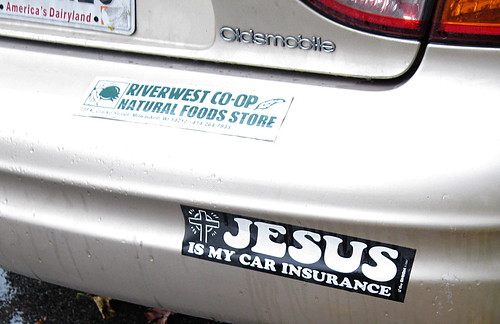 The Budget is rarely an occasion for celebration, and Chancellor George Osborne’s announcement that plans to increase fuel duties by 3p per litre would not be dropped has been met with negative reception from many British motorists, who feel they are already being charged too much for fuel.
The Budget is rarely an occasion for celebration, and Chancellor George Osborne’s announcement that plans to increase fuel duties by 3p per litre would not be dropped has been met with negative reception from many British motorists, who feel they are already being charged too much for fuel.
These new fuel duties will go into effect from August 2012, and a number of motoring groups have voiced their criticism of the initiative, which will cause cash-strapped motorists to be even more out of pocket. With the price of unleaded petrol rising above £1.40 in many parts of the UK, motorists will be paying more than ever before at the petrol pump.
Osborne has defended his decision by pointing to his previous scrapping of the fuel tax escalator in the March 2011 budget, which he explained would have made fuel 6p more expensive at present, if still in effect. This has reportedly saved motorists a total of £4.5 billion according to the Guardian newspaper, but many people feel more could have been done to combat the rising cost of motor fuel.
It’s not only fuel prices that were affected by the recent budget either, with the CO2 emissions threshold for company cars also being reduced from 160g per km to 130g from April 2013, which will penalise employees driving less fuel-efficient vehicles and medium-sized cars in general. However, diesel drivers may benefit from the change, with the dropping of the 3% diesel tax supplement from 2016.
If you’re concerned about the impact of the Budget on your day-to-day driving, switching to a more fuel efficient vehicle could be the most effective way to shield yourself from rising fuel prices, although this is not an economical option for everyone. Finding out how your driving habits could be consuming more fuel than necessary can also be very useful for helping a full tank last longer, such as avoiding stop-start driving or taking alternative routes to avoid traffic congestion.
Now is the ideal time to make these changes to your driving habits, with fuel price increases showing no signs of slowing down. Over the last two years, the monthly fuel bill for a family with two petrol cars has reportedly risen over the last year, and unleaded petrol is expected to have hit £1.50 by the time the new fuel duties are in effect in August. Comparing car insurance to find the best deals and buying used parts for repairs could help you save money in other aspects of car ownership.
Tags:
Budget,
budgeting,
Car,
economy,
money,
personal finance
You ever get that nagging feeling that there is something you should remember to do, but you’re not sure what it is? This can apply to many things in life, but in this case we’re talking about auto insurance. According to Susan Combs, president of Combs & Company in New York City, people “tend to get complacent” with their auto insurance. Reviewing your auto insurance policy annually is a good way to make sure you’re getting the coverage you need at a price you can afford.
Circumstances Change Over Time
Even if you found a good deal on auto insurance when you first signed your policy, circumstances can change. If you overlooked something or made a few errors or omissions on your initial policy, those changes can carryover to the next year. Many insurance companies give you the opportunity to make changes in your coverage once a year. If you assume there is nothing wrong, however, you are not likely to change anything. Some changes that may affect your auto insurance needs include:

• Purchase of new, fuel-efficient car that may make you eligible for certain discounts.
• Sale of a second vehicle that is still listed on your coverage, meaning you are paying for a vehicle you no longer have.
• Additional drivers on your policy may no longer need to be on your policy. This usually includes a former minor who now has his or her own policy.
• No longer driving your car as much as you once did. This could make you eligible for discounts for putting fewer hours on your vehicle.
• Purchase of a new car. If you update to a more recent model year, you could be eligible for discounts since new cars tend to have fewer maintenance issues.
• Discounts you weren’t eligible for at the time your policy started. This typically includes safe driver discounts that you may be eligible for if you had no accidents during the coverage year.
Too Much or Too Little Coverage
A common error people make on their auto insurance policy, according to Combs, is to have too much or too little coverage. If you get auto insurance coverage with the same company that provides your health and life insurance coverage, you’re likely duplicating some of your coverage. You may save money by combining all your policies with a single company. To determine if you have too much or too little coverage, take a look at the types of auto insurance you have and who is covered under your policy.
Coverage Options
Take a look at what type of coverage you have. Common types of auto insurance are: liability, collision, comprehensive, uninsured motorist and underinsured motorist. Additional options include rental reimbursement and emergency road service. When it comes time to consider changes to your policy, look at which coverage options you are using and which you are not. Granted, the purpose of insurance is to protect against the unexpected, but you still may be able to eliminate some coverage options. If you already get emergency road service from a AAA membership, for example, there is no need to have the same coverage with your auto insurance.
Who Is Covered
Auto insurance typically covers you and your spouse, legal drivers under the age of 18 and other licensed drivers who have permission to use your insured vehicle. If circumstances have changed, there is no reason you should be paying for drivers who no longer use your vehicle. Conversely, if you have a child who just turned 16 and is driving, you may want to add them to your coverage. This could save you money in the event of an accident while they are driving your car. Adjusting coverage as needed can reduce your premiums – and that makes for a happier driver.
Tags:
auto,
auto insurance,
Car,
Car insurance,
financial planning,
insurance
 The Budget is rarely an occasion for celebration, and Chancellor George Osborne’s announcement that plans to increase fuel duties by 3p per litre would not be dropped has been met with negative reception from many British motorists, who feel they are already being charged too much for fuel.
The Budget is rarely an occasion for celebration, and Chancellor George Osborne’s announcement that plans to increase fuel duties by 3p per litre would not be dropped has been met with negative reception from many British motorists, who feel they are already being charged too much for fuel.

Recent Comments